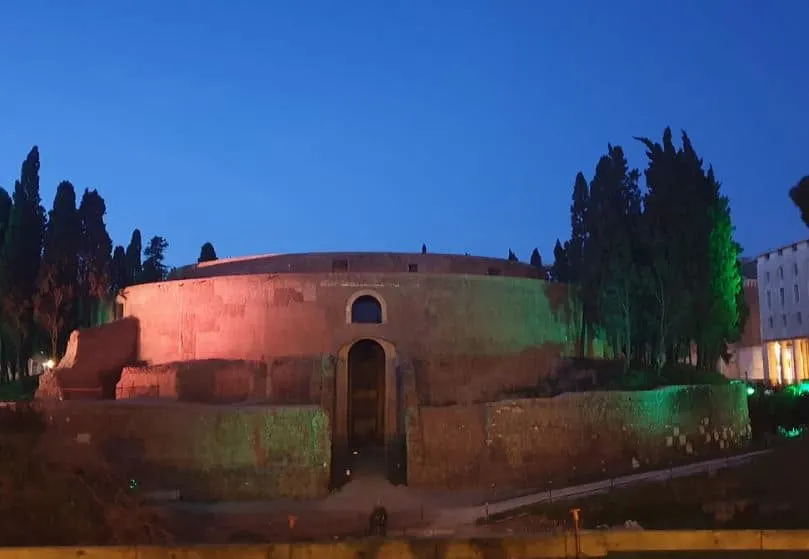Very few world leaders have had a greater impact on the course of human history than a man who was born in Rome on September 23, 63 B.C., as Gaius Octavius. Just like the ambiguity with which he reigned as the first Roman Emperor, this wasn’t the only name he went by during his lifetime.
Let’s take a closer look at some of the most interesting facts about Augustus, a man who singlehandedly created the Roman Empire and who historians consider to be one of the most successful, yet contentious leaders to have ever lived.
1. Augustus was born into a rich family in Rome
The man we now know as Augustus was born in Rome as Gaius Octavius on September 23, 63 B.C. His future seemed to have been destined as he was born right on Palatine Hill in central Rome, just near the Roman Forum and the political heart of the city.
He was raised in the hometown of his father called Velletri, about 40 kilometers (25 miles) southeast of Rome. His father was of an equestrian family, a distinguished class of ancient Rome just below senatorial rank.
He had some reputable ancestors such as his great-grandfather, Gaius Octavius, who was a military tribune in Sicily during the Second Punic War. His grandfather went into politics and his own father (who had the same name) eventually became governor of Macedonia.
2. He was the adopted son and heir of Julius Caesar
One of the most interesting facts about Augustus is that his own political career was built on the foundation that his great-uncle was “Gaius Julius Caesar” (100-44 B.C.), arguably the most famous figure in ancient Roman history.
His mother was named Atia Balba (85-43 B.C.) was the daughter of Julius Caesar’s sister, which means she was effectively the niece of the Roman general and statesman.
Because of this connection and the fact that he was a suited heir, he became the adopted son of Julius Caesar according to his will. He only learned about this fact following the assassination of Caesar on March 15, 44 B.C.

3. He went by at least 6 names during his lifetime
Even though he was given the same name as his father at birth, Gaius Octavius, he was renamed Gaius Octavius Thurinus when he was just a few years old in 60 B.C.

The other names he went by were as follows:
- Gaius Julius Caesar Octavianus – According to the will of Julius Caesar as his lawful son and heir.
- Gaius Julius Caesar Divi Filius – Following the deification of Caesar he added “Divi Filius” or “Son of the Divine.”
- Imperator Caesar Divi Filius – He added “Imperator” in 38 B.C. in order to strengthen his political career as this title was used by the Roman army to celebrate military success. Imperator pretty much means “Commander.”
- Imperator Caesar Divi Filius Augustus – The Roman Senate gave him the title of Augustus following his rise to power in 27 B.C., a name he would go by until his death in 14 A.D. and by which we basically know him today.
4. He made a cunning move to fund his political career
Following the death of Julius Caesar in 44 B.C., he wasn’t as rich as he would have liked and certainly not rich enough to take a commanding position in Rome yet.
He did, however, have plenty of ambition and used a cunning method to fund his own political career. Caesar had been planning an invasion of the Parthian Empire and had stored 700 million sesterces for this campaign.
Upon receiving support from the army, Augustus claimed this money in Brundisium (southern Italy) and used it to pay soldiers and veteran legionaries. He managed to raise an army of 3,000 soldiers this way and marched to Rome shortly after.
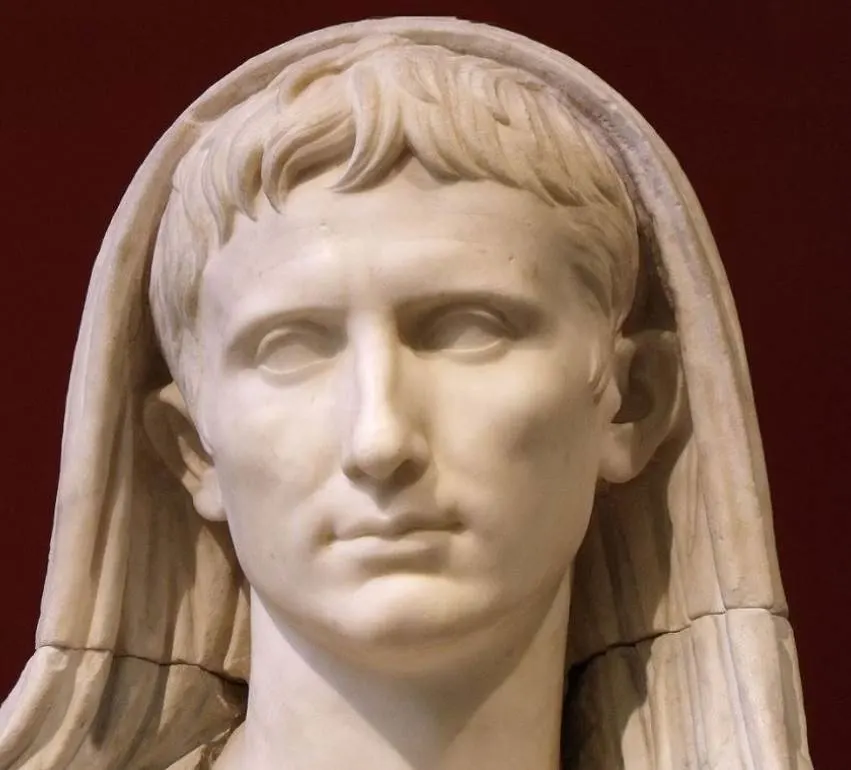
5. The Second Triumvirate eliminated Caesar’s assassins
Upon his arrival in Rome, Augustus decided that it was best to ally with Caesar’s main followers, Mark Anthony and Marcus Aemilius Lepidus. This agreement was called the “Second Triumvirate” and was agreed upon in October 43 B.C.
So what did this trio do? They instantly took steps to eliminate their political rivals!
Between 130 and 300 senators and about 2,000 important military figures were officially outlawed and were either forced to escape or were executed.
Shortly after, Julius Caesar was deified and the Second Triumvirate went after his assassins, eventually forcing the two main plotters, Brutus and Cassius, to commit suicide following their loss in the battles at Philippi in October, 42 B.C.
6. He used propaganda to declare war on Mark Anthony and Cleopatra
The Second Triumvirate didn’t last because all members were too keen on seizing power. Lepidus eventually surrendered to Octavian and was allowed to retire at a villa at Cape Circei in Italy.
Mark Anthony didn’t give in and ended up forming up an alliance with the equally cunning Cleopatra, the female ruler of Egypt.
This is the moment where Augustus’ political cleverness excelled. He first sent his sister, Octavia, to Egypt to marry Mark Anthony. When he rejected her he used this to stir up Roman sentiment against Mark Anthony.
Finally, he managed to gain the support of two senators who supported Anthony and managed to seize his secret will in the temple of the Vestal Virgins.
This was read aloud to all Senators and when it came to light that he carved up the Empire among his sons and intended to make Alexandria the location of his and his queen’s tomb, the Senate instantly declared war on Mark Anthony and Cleopatra.
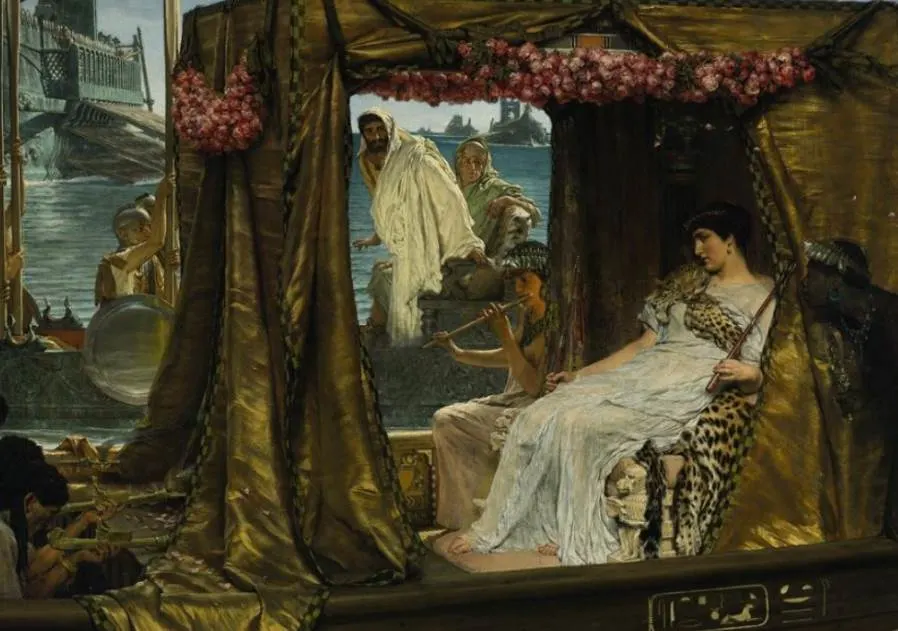
7. The decisive battle was fought at Actium near Greece
When Augustus learned that Mark Anthony and Cleopatra were in Greece, he sent out his fleet for a showdown. He cut off their supply and finally engaged them in an event referred to as the Battle of Actium, which happened on September 2, 31 B.C.
Even though Anthony and Cleopatra managed to escape, they were chased all the way to Alexandria and were eventually defeated and forced to commit suicide. This happened on either August 10 or 12 of the year 30 B.C.
This decisive battle allowed Augustus to seize sole power of what would end up being the final years of the Roman Republic!
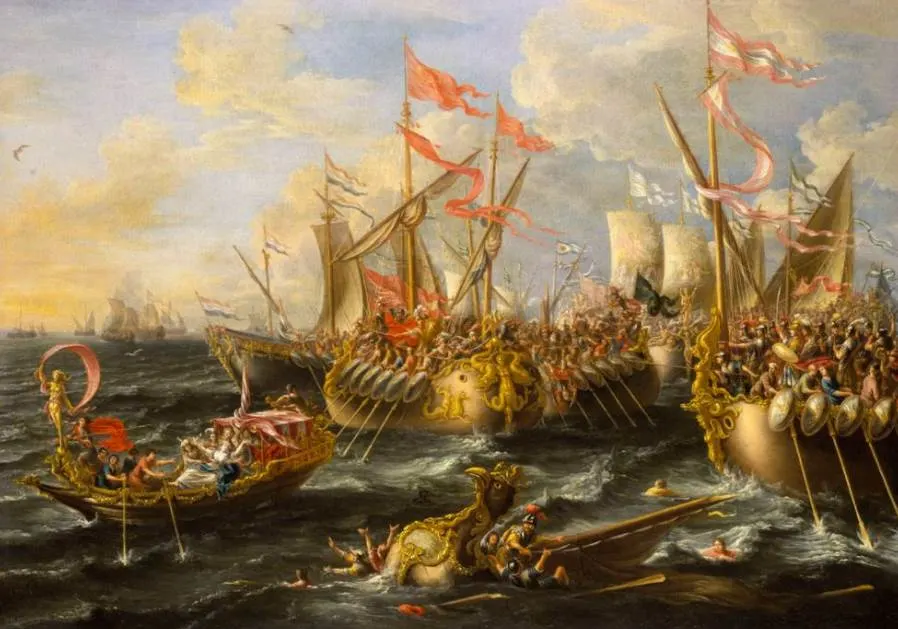
8. The Senate awarded him 2 important titles in 27 B.C.
The Roman Republic was in shambles following the Battle of Actium and the never-ending civil war wasn’t too far away. Octavian had to make some important decisions and probably made his best decision in 27 B.C.
This is the year that he granted full power back to the Roman Senate, centralizing the power of the Roman Republic back to Rome while reducing the power of the Roman territories.
The support of the Senate and the people in Rome eventually allowed him to seize complete power. he received the titles of “Augustus” and “Princeps” on January 16, 27 B.C., and was allowed to hang the “corona Civica” or the “civic crown” above his door.
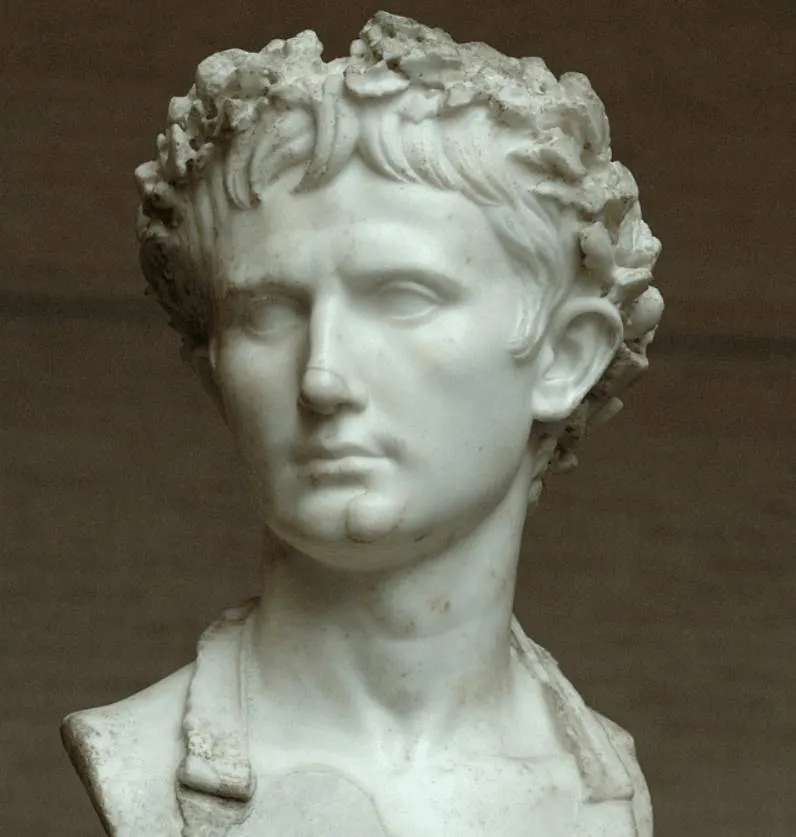
9. He didn’t refer to himself as a dictator but as “Princeps Civitatis”
Even though he managed to gain autocratic authority, something that reduced the power of the Senate on all important decisions, he was very keen on not referring to himself as a dictator.
Instead, he used another clever tactic to gain support and called himself “Princeps Civitatis,” which translates to “First Citizen.” This indeed sounds much better, even though he was pretty much in full control of Rome, don’t you think?
10. Augustus greatly expanded the Roman Empire on all sides
The Roman Senate could be considered the outward political façade of the Roman Republic, mainly because Augustus managed to grant himself the ultimate power of the supreme military command, tribune, and censor.
The main reason why he could retain this kind of power was because of continuous military campaigns that both seriously expanded the Roman Empire, but also brought back enormous wealth from these newly acquired territories.
His main propaganda campaign was based on the fact that he mainly referred to himself as “Imperator,” a reference to his countless military victories.
During his reign, he annexed Egypt, Dalmatia, Pannonia, Noricum, and Raetia, increased territories in Africa, and completed the conquest of Hispania (modern-day Spain and Portugal).
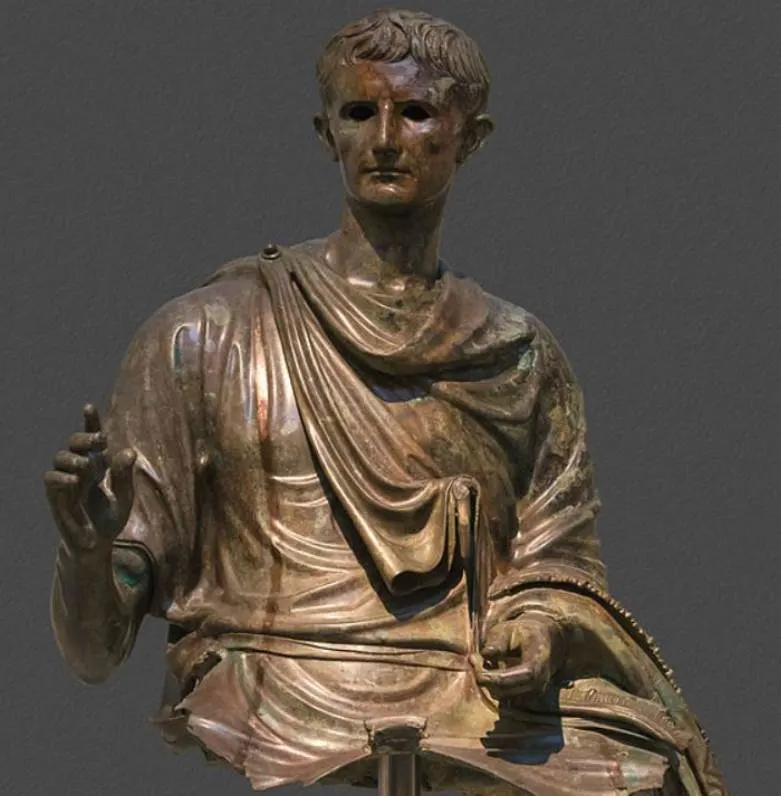
11. He banged his head against his palace walls after a serious defeat
This impeccable propaganda campaign of military victories was shattered when Augustus lost 3 entire legions in the so-called “Battle of the Teutoburg Forest” in the year 9 A.D.
This event is also referred to as the “Varian Disaster” about the man who was leading the Roman troops through the dense forests on the northern border of the Roman Empire called Publius Quinctilius Varus.
The Romans passing through this thick forest were constantly ambushed by Germanic Peoples led by a man named “Arminius.” He was considered to be an ally of the Romans but went rogue and used their own tactics against them.
Following this devastating defeat, Augustus reportedly banged his head against the wall shouting “Quintili Vare, legiones redde!” which translates to “Quintilius Varus, give me back my legions!“
12. He was succeeded by a man who originally retired from politics
The problem of finding a suiting heir was one of the main issues during the life of Augustus. Being unable to do so would have caused a serious problem most probably ending in another civil war.
His grandsons and chosen heirs Lucius and Gaius passed away in 2 and 4 A.D. respectively, so he turned to his stepson Tiberius Claudius, the son of his wife Livia’s first marriage.
Tiberius had the same tribunal powers as Augustus since the year 6 B.C. but suddenly retired from politics shortly after for unknown reasons. He eventually came back and ended up succeeding Augustus as the second Roman Emperor, a position he held between 14 and 37 A.D.
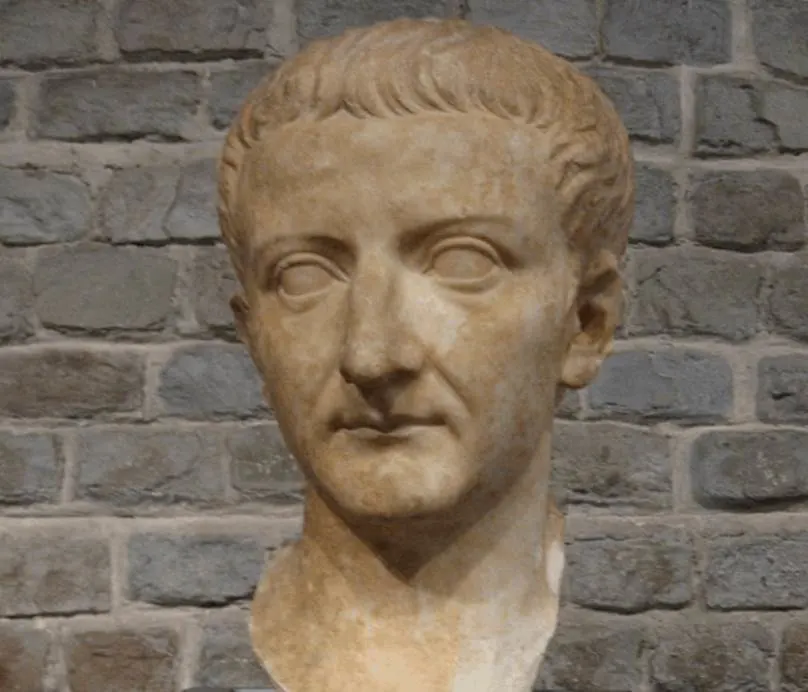
13. His reign started an era of peace in the Roman world
Augustus died on August 19, 14 A.D., in Nola in the city of Naples in southern Italy. The Roman Empire that he founded lasted for nearly 1500 years, effectively ending with the Fall of Constantinople in the year 1453.
It’s assumed that his final words in private were “Acta est Fabula, plaudite,” which translates to “Have I played the part well? Then applaud as I exit.”
His final public words were “Marmoream se relinquere, quam latericiam accepisset” which translates to “Behold, I found Rome of clay, and leave her to you of marble.” This could either be a reference to the rebuilding of Rome itself, or a metaphor for the Roman Empire as a whole.
His reign was the prelude to the so-called “Pax Romana,” a period that lasted for nearly 2 centuries in which the Roman Empire was free of any major internal conflict.
All Roman Emperors following the 2nd century A.D. were inaugurated with the words: “May you be more fortunate than Augustus and better than Trajan.”
14. He mainly lived in a house on Palatine Hill during his reign
Did you know that you can still visit the house that Augustus lived in together with his wife Livia on Palatine Hill in Rome?
This house is called the “Domus Augusti” (House of Augustus) and has been identified as the primary residence of the first Roman Emperor and his family.
The house is rather humble, to say the least, and even though many parts lay in ruins today, some of the rooms still feature the original frescoes as they appeared while the man lived here. Quite astonishing!
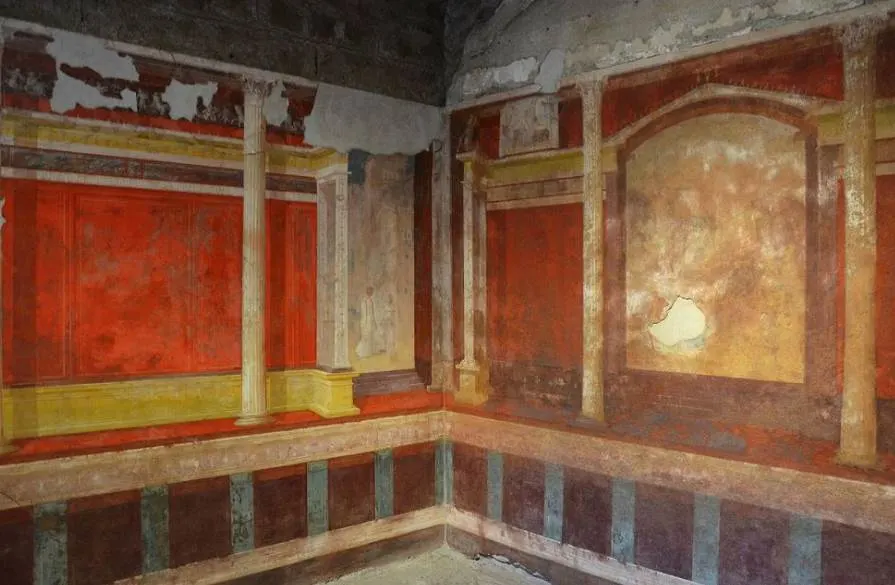
15. His first construction project is still a tourist attraction today
Perhaps one of the most amazing facts about Augustus is that the first construction project he started was the so-called “Mausoleum of Augustus,” one of the most fascinating mausoleums in the world!
This circular structure was by far the tallest building in Rome back then and was constructed shortly after he came to power in 27 B.C. It was originally intended to house the remains of his family members.
Today, the mausoleum has been completely restored and has been open to the public again since March 2021, making it one of the most prominent remembrances of the first Roman Emperor in the city and one of the most intriguing landmarks in Rome!
